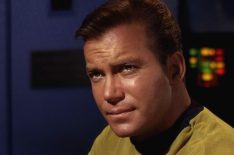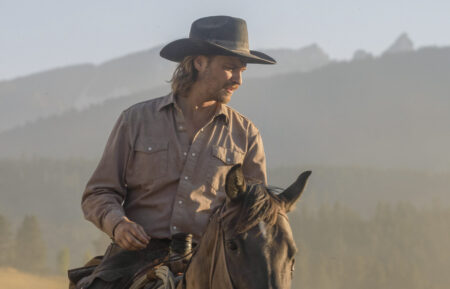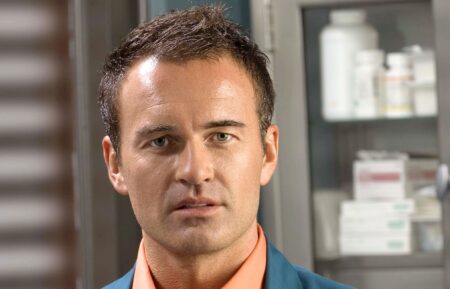‘Star Trek’ Star William Shatner Felt ‘Overwhelming Sadness’ During His Trek to Space
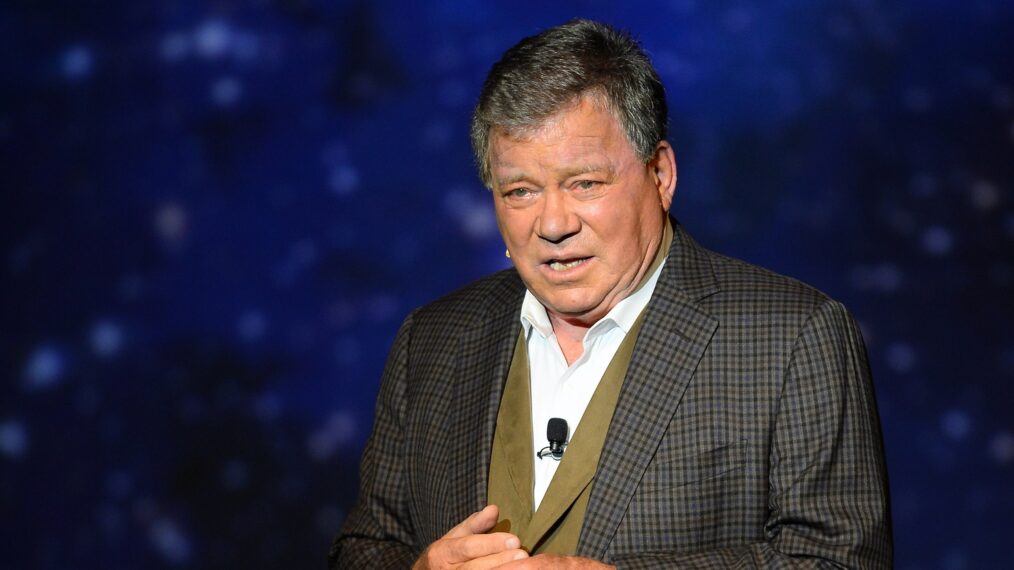
After years of playing a spacefarer on TV, Star Trek actor William Shatner finally got a real-life chance to venture into that final frontier himself with a Blue Origin spaceflight on October 13, 2021. In so doing, the Captain Kirk portrayer became the oldest person to travel to space.
But in his new book, Boldly Go: Reflections on a Life of Awe and Wonder, Shatner reveals an unexpected reaction to seeing Earth from miles above: “overwhelming sadness.”
In a book excerpt Variety posted online, Shatner describes his emotions boarding the spaceflight alongside tech businessman Glen de Vries, Blue Origin VP Audrey Powers, and former NASA engineer Dr. Chris Boshuizen.
He recalls, for example, seeing a cement-encased room at the top of the gantry, a room to which he was supposed to evacuate if the rocket exploded. And he says he panicked when the ground crew mentioned a “slight anomaly in the engine” just before blast-off.
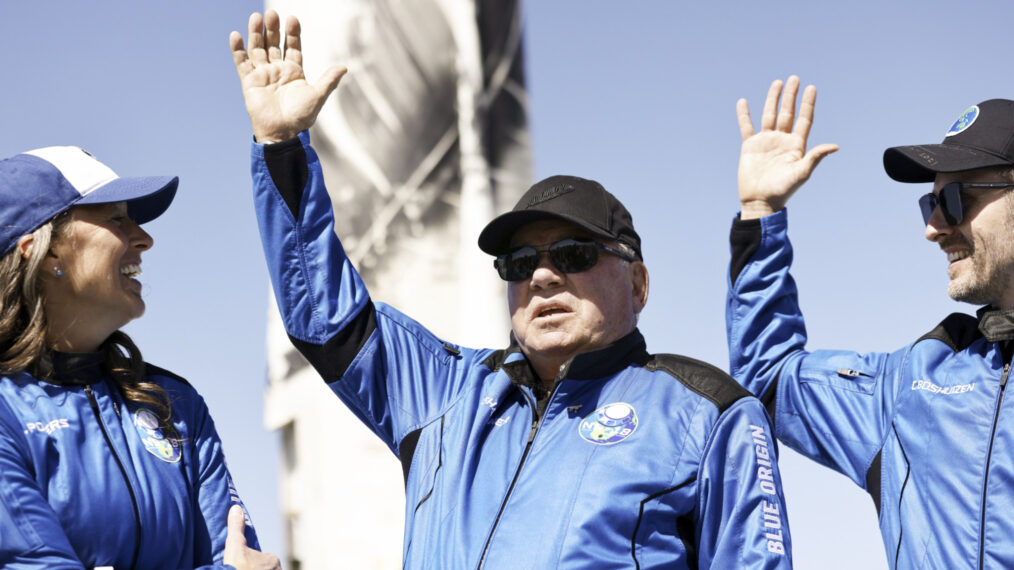
Mario Tama/Getty Images
Then came the launch — and its intense gravitational forces. “At two g’s, I tried to raise my arm, and could barely do so,” Shatner writes. “At three g’s, I felt my face being pushed down into my seat. I don’t know how much more of this I can take, I thought. Will I pass out? Will my face melt into a pile of mush? How many g’s can my ninety-year-old body handle? And then, suddenly, relief. No g’s. Zero. Weightlessness. We were floating.”
Looking out the windows of the New Shepherd crew capsule, Shatner saw the bleakness of outer space. “There was no mystery, no majestic awe to behold … all I saw was death,” he writes. “I saw a cold, dark, black emptiness. It was unlike any blackness you can see or feel on Earth. It was deep, enveloping, all-encompassing.”
And then he turned back to the “light of home,” only to be walloped by another emotion: “It was among the strongest feelings of grief I have ever encountered. The contrast between the vicious coldness of space and the warm nurturing of Earth below filled me with overwhelming sadness. Every day, we are confronted with the knowledge of further destruction of Earth at our hands: the extinction of animal species, of flora and fauna … things that took five billion years to evolve, and suddenly we will never see them again because of the interference of mankind. It filled me with dread. My trip to space was supposed to be a celebration; instead, it felt like a funeral.”
Shatner shares that other astronauts have felt this so-called “Overview Effect,” including Yuri Gagarin, Michael Collins, and Sally Ride.
“Essentially, when someone travels to space and views Earth from orbit, a sense of the planet’s fragility takes hold in an ineffable, instinctive manner,” he says. “Author Frank White first coined the term in 1987: ‘There are no borders or boundaries on our planet except those that we create in our minds or through human behaviors. All the ideas and concepts that divide us when we are on the surface begin to fade from orbit and the moon. The result is a shift in worldview, and in identity.’”
Shatner, of course, returned to Earth, and his mindset eventually returned to one of hope. “In this insignificance we share, we have one gift that other species perhaps do not: we are aware —not only of our insignificance, but the grandeur around us that makes us insignificant,” he observes in the book. “That allows us perhaps a chance to rededicate ourselves to our planet, to each other, to life and love all around us. If we seize that chance.”

